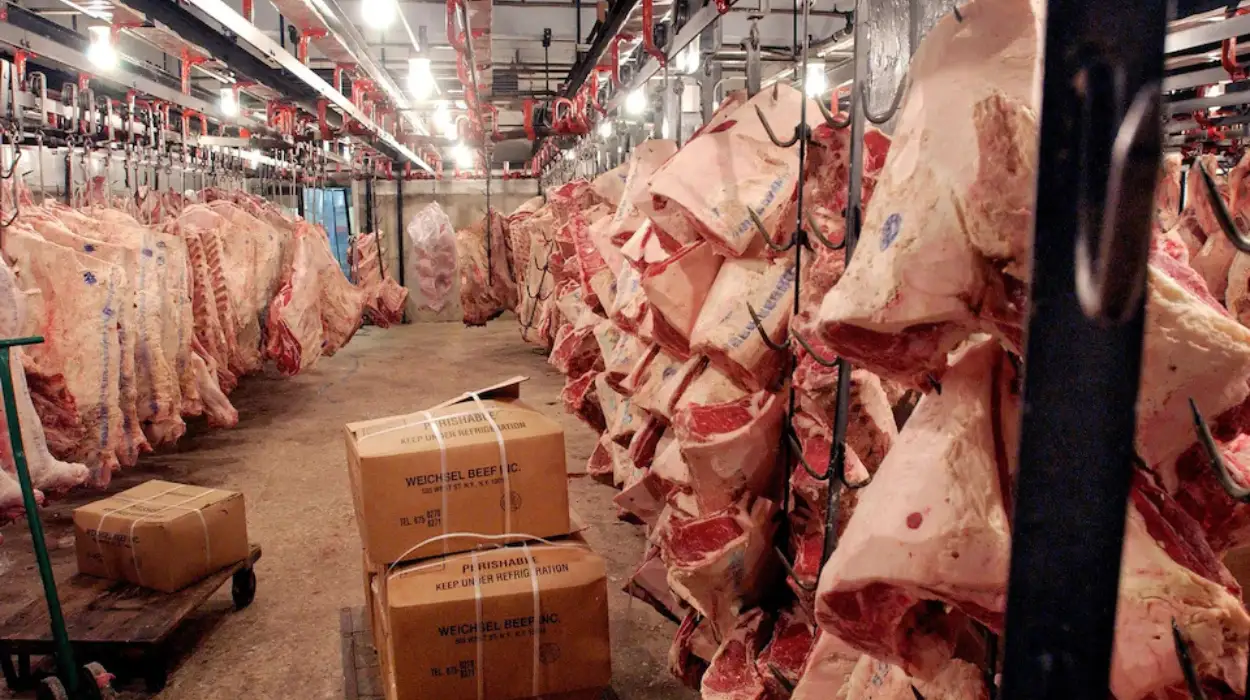UK (Parliament Politics Magazine) – Keir Starmer’s US trade deal sparks backlash over fears of substandard beef imports, despite government reassurances on food safety standards.
As per The Telegraph, farming groups have sparked concern over an influx of low-grade American beef. The US and UK have agreed to ease tariffs on beef trade under a deal announced on 8 May.
What did Steve Reed say about hormone-treated beef and UK access to the US market?
Environment Secretary Steve Reed maintained that British regulations will remain firm, banning hormone-injected beef and chlorine-washed chicken.
He stated,
“I have always been clear: no hormone-treated beef, no chlorinated chicken.”
Mr Reed said,
“As promised, these products remain illegal in the UK. That will not change,”
Adding,
“But that isn’t all. For the first time, this Labour Government has secured exclusive access for UK beef farmers to the US market.”
He continued,
“That means there is a major opportunity to increase exports to the world’s largest consumer market where our high-quality beef products are in demand. Only very few other countries enjoy this level of access.”
What did Liz Webster say about low-quality beef entering the UK?
Liz Webster, founder of Save British Farming, expressed concerns that the UK’s borders are insufficient to prevent low-quality beef imports.
She said,
“It’s all very well from packaging up the details and saying, ‘Oh, it’s fine we will only give you the good stuff.’ There is no mechanism to ensure that that happens.”
Ms Webster added,
“We’ve already got a lot of substandard food coming in here, because our borders are as good as a chocolate teapot, and there is no mechanism in America to filter out produce.”
What did Tom Bradshaw say about upholding food safety standards?
Tom Bradshaw of the National Farmers’ Union emphasized the importance of maintaining strong standards for American food imports.
Before the agreement was revealed, he said,
“In any trade deal with the US, ministers must uphold their commitments and ensure that food that would be illegal to produce here from a food safety, animal welfare or environmental perspective is not granted access to our market.”
After the deal was announced, he praised the Government’s efforts for preserving high food standards and ensuring British beef farmers could access the US market.
Mr Bradshaw said,
“We appreciate the Government’s efforts in listening to our concerns, particularly around maintaining high standards, protecting sensitive agricultural sectors and securing reciprocal access for beef.”
He stated,
“For several years, we’ve campaigned with the UK’s agricultural attachés in Washington for market access for British beef, a product globally respected for its quality and strong environmental credentials. These efforts have contributed to enabling the UK government to secure ring-fenced access for British beef exports to the US.”
What Did Darren Jones Say About Protecting UK Food Standards?
Darren Jones said the Government’s food standards “remain unchanged” and will continue to remain the same despite trade deal fears.
He said,
“Our food standards have been protected. They have not changed and they will not change.”
Mr Jones added,
“What that means of course is that companies, whether in the United States or other parts of the world, know that because of those food production standards if they try to import hormone-treated meat, for example, that that is in breach of the law, there are checks on these products at the border and if people are in breach of the law there will be consequences for that.”
What did Ian McCubbine say about concerns over US food imports and standards?
Ian McCubbine a Surrey-based farmer, said,
“I think that we have to be careful that we are stringent about food standards. Our beef our whole food chain is globally reckoned to be the best quality of everything. And I’m slightly concerned that the US want to put stuff into us which is going to be lower quality.”
He added,
“I know I hear all the stuff that’s going to be stringently looked at and stuff like that, but sometimes the devil is in the details.”
Mr McCubbine stressed that the government must remain resolute in its approach to food standards, highlighting Britain’s 50-year commitment to creating an industry that prioritized both environmental gain and animal welfare.
Key points of UK-US trade deal
- Tariff Cuts:
- UK steel/aluminium exports to the US: 25% to 0%.
- UK car exports to the US: 27.5% to 10%.
- Beef Access: UK beef is now allowed in the US market.
- Food Standards: No hormone-treated beef or chlorinated chicken allowed.
- Pharmaceuticals & Aerospace: The UK gets preferential access to both industries.
- Ongoing Talks: Future talks on tech and film industries.

